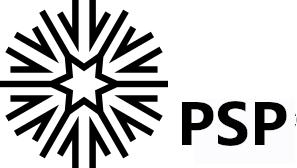Diploma in Therapeutic Counselling (Psychosynthesis)

This course is still in development. PSP will establish this course as soon as sufficient trainees and Teaching Faculty are available.
The Diploma is a crucial stage along the pathway to an accredited psychotherapy qualification.
As well as continuing to explore Psychosynthesis in personal and group settings, students will learn counselling skills, practice development, how to make best use of professional memberships, working with other modalities and disciplines, as well as deepening cultural and social awareness.
The core of this course is led by experienced Psychosynthesis tutors, augmented by elective papers which may be led by external tutors from other disciplines.
Participants are expected to continue working with a Psychosynthesis practitioner, as well as attending clinical supervision.
Course Modules
-
Te Pae Mahutonga
Building on the Making of Meaning seminars from Year 1 this experiential weekend will provide a cultural anchor for and attended to through all the subsequent modules in Years 2 through to 5. Themes shaping this weekend include the following:
1. Toiora – Healthy lifestyles
2. Mauriora – Cultural identity
3. Te Oranga – Participation in society
4. Waiora – Place and environment
5. Manukura – Leadership
6. Te Mana Whakahaere – Autonomy -
Systems and Contexts
The Ecology of Being – the interplay of dynamics that shape both individual and group experience. Participants will develop an appreciation of their own and others’ safety strategies, and how these manifest in the dynamics of attachment, transference and projection, and how such information can serve in the healing process.
-
Creativity, Paradox and Mind
Exploring how controlling belief systems serve and limit, and opening up to an experience of mind that is more than the rational analytic functions. Theory and practices that enable opportunities to use mind holding a position that includes sensory awareness, as well as access to concrete, abstract and intuitive functioning. These skills serve to allow space with the client’s content, enabling creativity, freedom and flexibility in hypothesising and building context.
-
Creativity: Willing the World
Psychosynthesis recognises Will to be the integrating and directing function of the psyche, shaping how energy and information is organised and manifests at every level. Within this experiential evolution of personal and collective Will, students are supported in developing and implementing a Will Project. In doing so, they experience how the aligning of purpose, meaning and value in practice and action helps clarifying needs, releasing energy that can get stuck.
-
Context and Flow
We understand a sense of context to arise when embodied felt sense meets the well-resourced mind. This enables the psychosynthesis practitioner to develop their sense of informed connection and insight with their client. Thus, the clarifying and deepening of context can be understood in terms of individual development and in revealing the patterns and systems that shape us and our responses.
-
What might be seeking to emerge
As a client develops trust in the counselling process, practitioner and client can explore the presenting issue in ways which shed light on how the client expresses Will, how they manage themselves in the world in terms of personality and patterns of behaviour and what may be possible if they develop a more inclusive sense of themselves and their potential. The practitioner will need understanding of transferential dynamics and the dynamics of attachment, fear and resistance in the face of change.
-
Change, Balance and Complexity
Each passing moment increases the complexity of the whole system of which we are part: change is the inevitable result of being alive. Psychosynthesis understands change through a lens of Will in action, as a phenomenon that can be worked with and shaped, though not avoided. Developing a systemic understanding of the dynamics of change offers clients more points of entry into the process of aligning purpose and will with the reality of their life experience.
-
Coping with traumatic experience
This model begins to explore the origins, impacts and physiology of trauma in its sensate, emotional and mental dimensions, with particular reference to violence and abuse. It will include reflection on the impacts of cultural trauma arising from colonisation, as well as power issues relating to gender, socialisation, cultural attitudes and entitlement. The module will reference some of the more exciting recent findings from trauma researchers.
-
Myth, Symbols, Dreams and Imagination
Information from outside our day-to-day awareness and language often presents itself by way of dreams and imagery, and may be catalysed from story, myth, song and film. Students will learn a range of techniques for accessing and dialoguing this sub and supra liminal consciousness, for bringing insight to the middle ground, and then for appropriate grounding and subsequent integration.
-
Te Ao Maori and Other Worlds
Colonisation has distorted the cultural experience and heritage of both Maori and Pakeha, with huge impact on our individual and shared experience of being in both Aotearoa and New Zealand. Regular attention is paid how embedded cultural anticipations and expectations can have a profound effect in the counselling room. Whilst this module particularly focuses on the situation in the local setting, it is designed to assist students from other colonised nations to bring greater sensibility to this aspect of their work in their own country.
Course Duration
The Diploma in Therapeutic Counselling (Psychosynthesis) will be taught over a two year period involving 14 teaching weekends.
The Certificate in Psychosynthesis Integration is a prerequisite for the Diploma in Therapeutic Counselling (Psychosynthesis).
The Diploma in Therapeutic Counselling (Psychosynthesis) is currently under development. For more information please contact the PSP administrator.
Note: This qualification is not currently recognised by NZAC.

